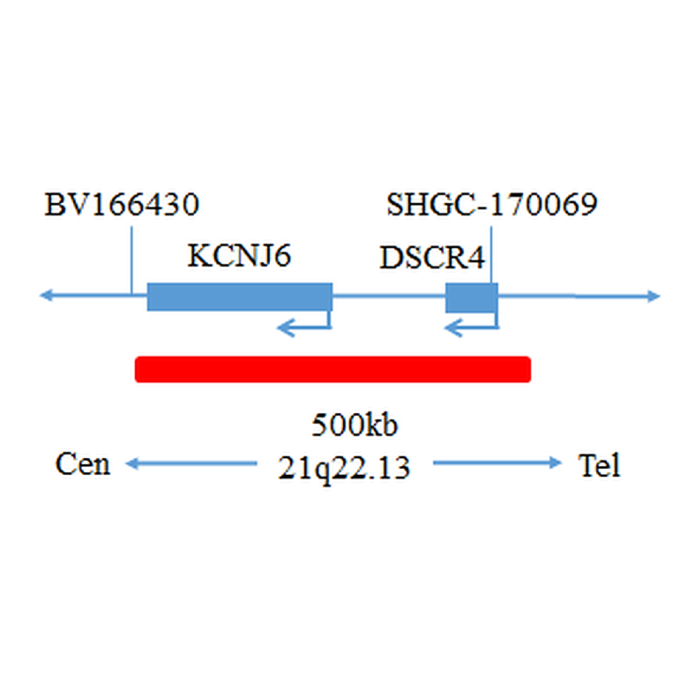Prenatal chromosomes detection probe (13/21 ; 18/X/Y)
Prenatal Chromosomes (13/21 ; 18/X/Y) Probe Detection Kit - 200µL/10 Tests
Aneuploidy is the most common chromosome abnormality that results in either increase or decrease in the number of chromosomes leading to miscarriage and congenital birth defects. Aneuploidies of five particular chromosomes (13, 18, 21, X, Y) leads to significant percentage of the chromosomal aberrations Therefore, it is highly imperative in prenatal diagnostics to analyze chromosomal abnormalities by utilizing procedures such as Fluorescence In Situ Hybridization or FISH.
Product Main Components
The kit consists of 18/X/Y Trichromatic probe and 13/21 dual color probe
|
Component name |
Specifications |
Quantity |
Main components |
|
18/X/Y trichromatic probe |
100μL/Tube |
1 |
18 Cyan probe, X Green probe, Y Orange red probe |
|
13/21 dual color probe |
100μL/Tube |
1 |
13 Green probe, 21 Orange red probe |
Intend use
This kit is mainly used to detect 13/18/21/X/Y chromosome number in amniotic fluid cell samples. The design of the kit includes two groups of probes, 18/X/Y and 13/21. The probe combination 18/X/y was located in 18p11.1-q11.1, xp11.1-q11.1 and yp11.1-q11.1, respectively, and 13 / 21 was located in 13q14.2 and 21q22.13 regions, respectively. It is suitable for pregnant women with clinical high risk factors (such as elderly pregnant women, pregnant women with abnormal fetal structure and suspected 13/18/21/X/Y chromosome number abnormality) and the detection results are not used as the basis for clinical diagnosis. This product is only suitable for the detection of amniotic fluid cells, and cannot detect other chromosomal structural abnormalities that can lead to birth defects, and should not be used for gender identification of non-medical needs.
Detection principle
Fluorescence in situ hybridization (FISH) is a technique for directly observing specific nucleic acids in cells in vitro. According to the principle of base complementary pairing, the specific DNA sequence is complementary to the target sequence in the cell. Because the probe has fluorescence, the hybridization probe and target DNA can be clearly observed under the fluorescence microscope under the appropriate excitation light. The kit consists of two groups of probes, 18/X/Y and 13/21.
The probe combination 18/X/y was located in 18p11.1-q11.1, xp11.1-q11.1 and yp11.1-q11.1, respectively, and 13/21 was located in 13q14.2 and 21q22.13 regions, respectively. The probe can be combined with the target site by in situ hybridization, and the corresponding fluorescence signal points in a single cell can be observed clearly under the fluorescence microscope, so as to determine the number of the chromosome segment. The chromosome number of 13/18/21/X/Y in the samples was detected by this method, which can provide reference for clinical diagnosis.

